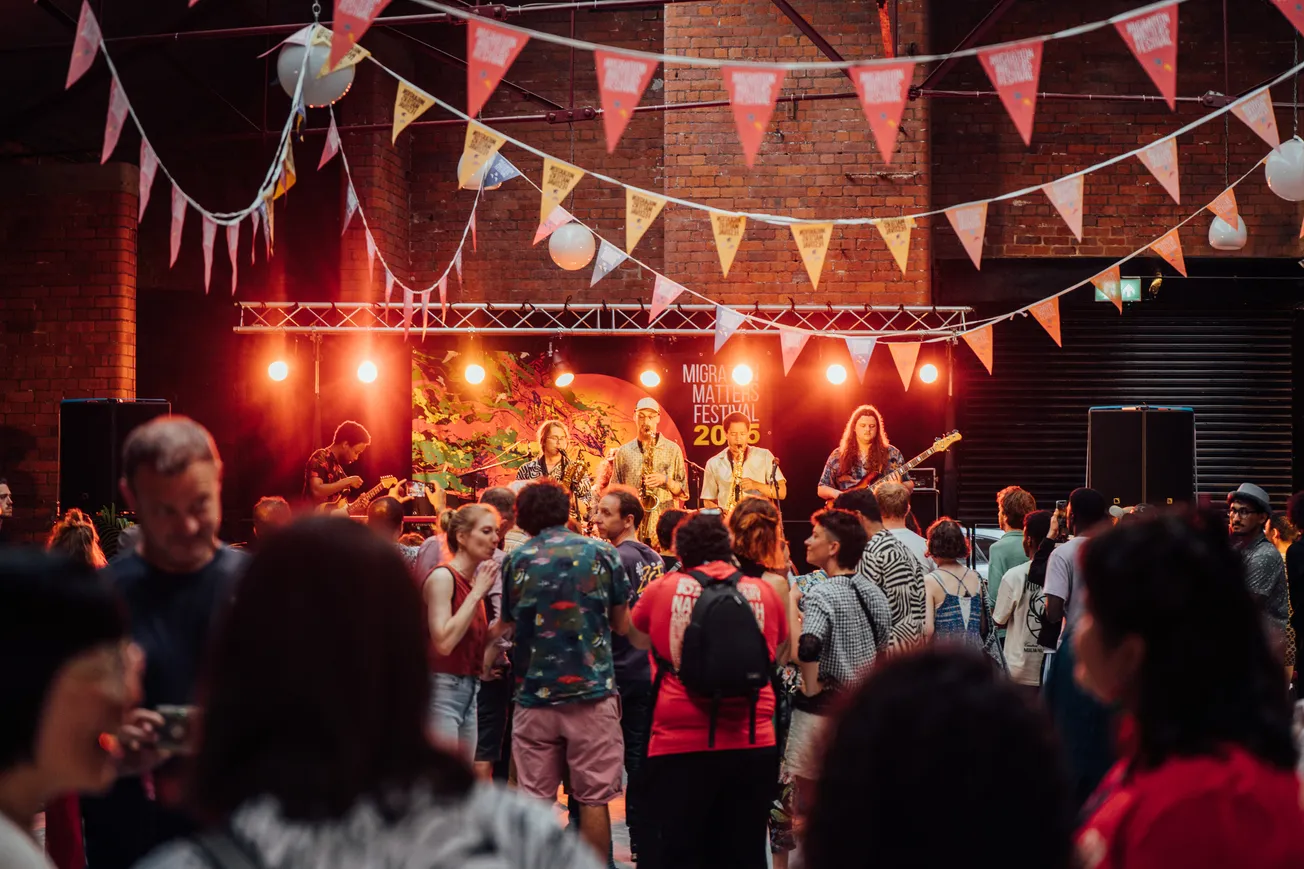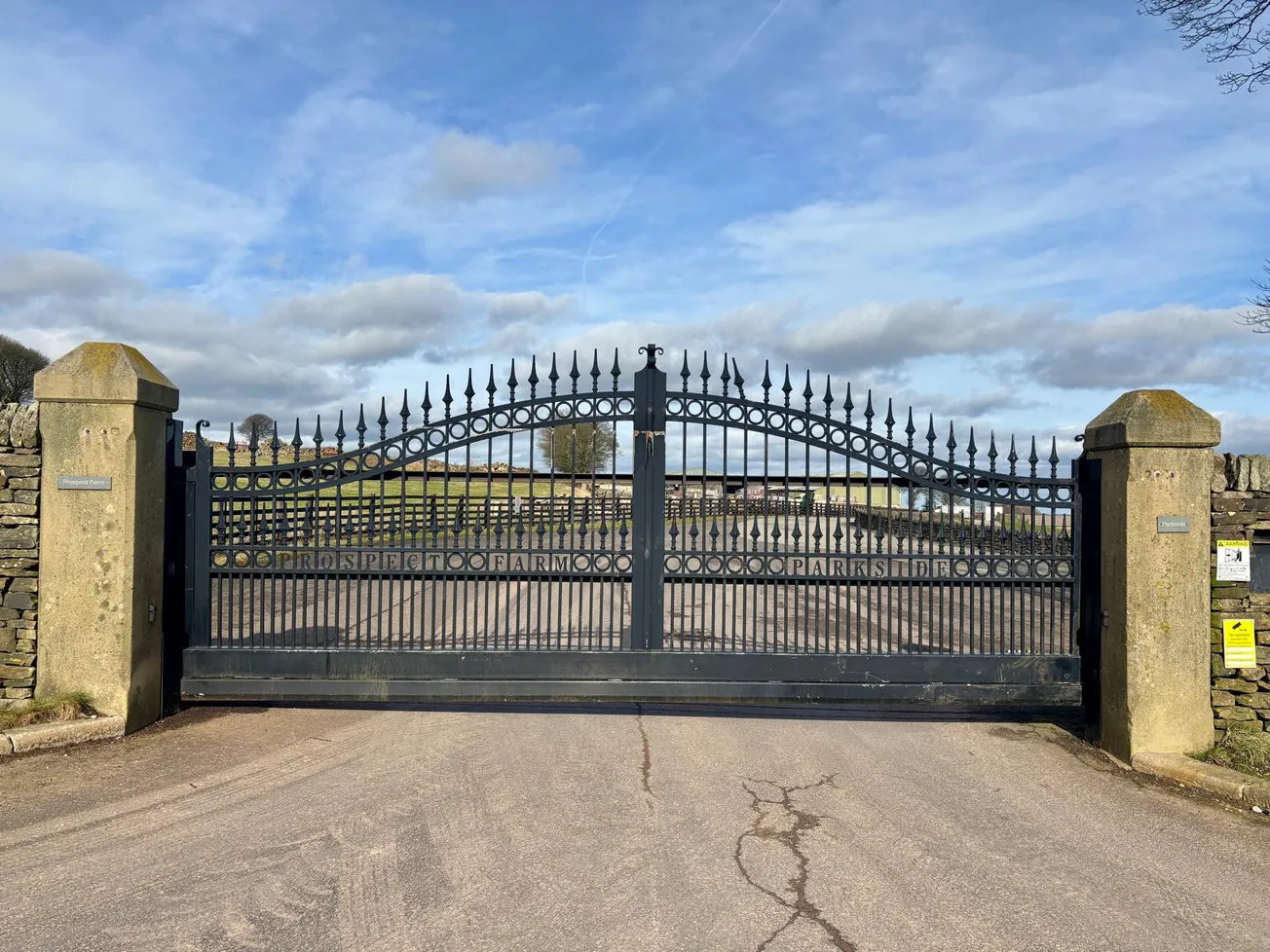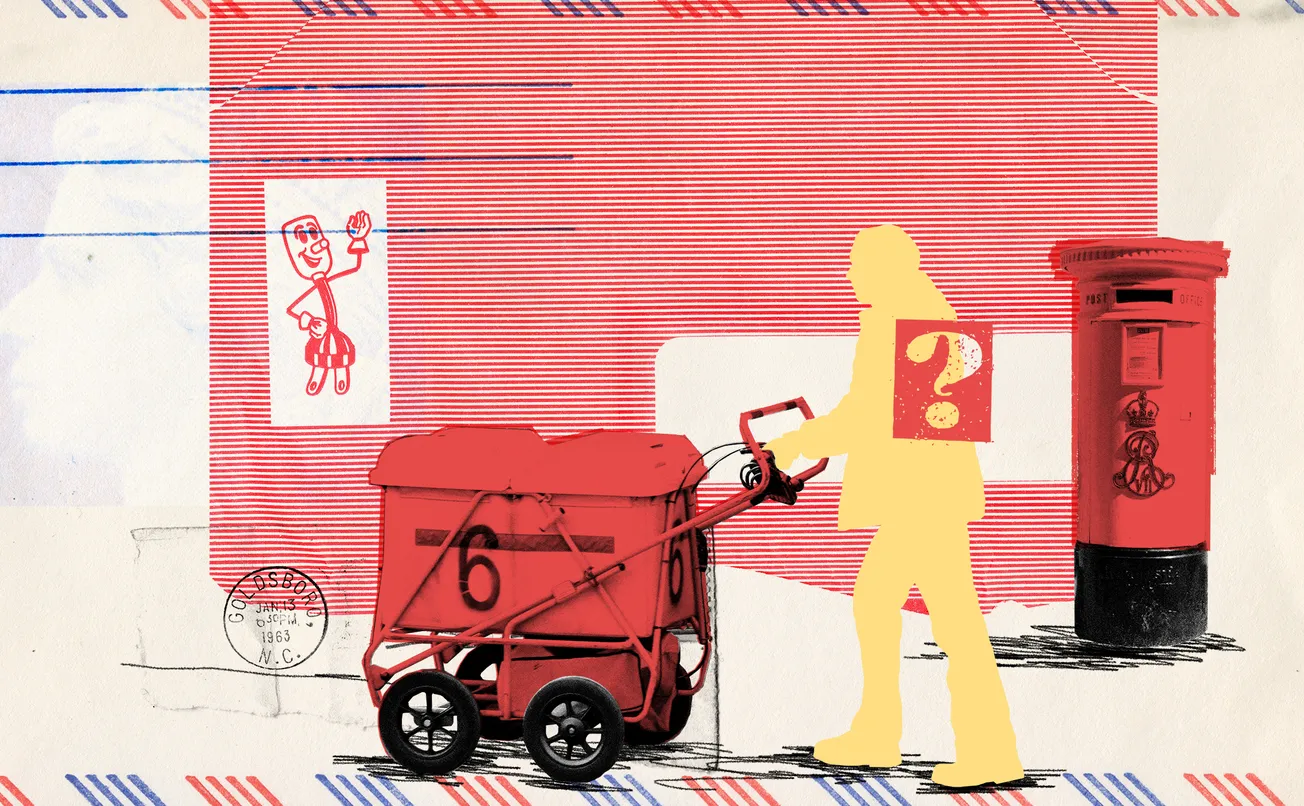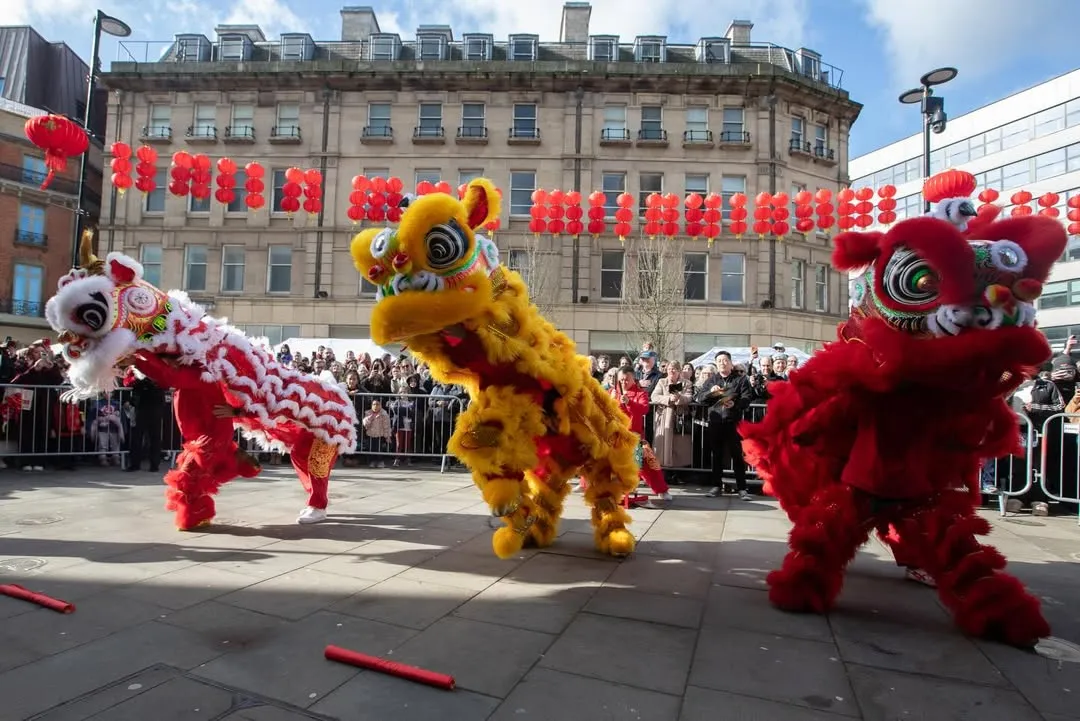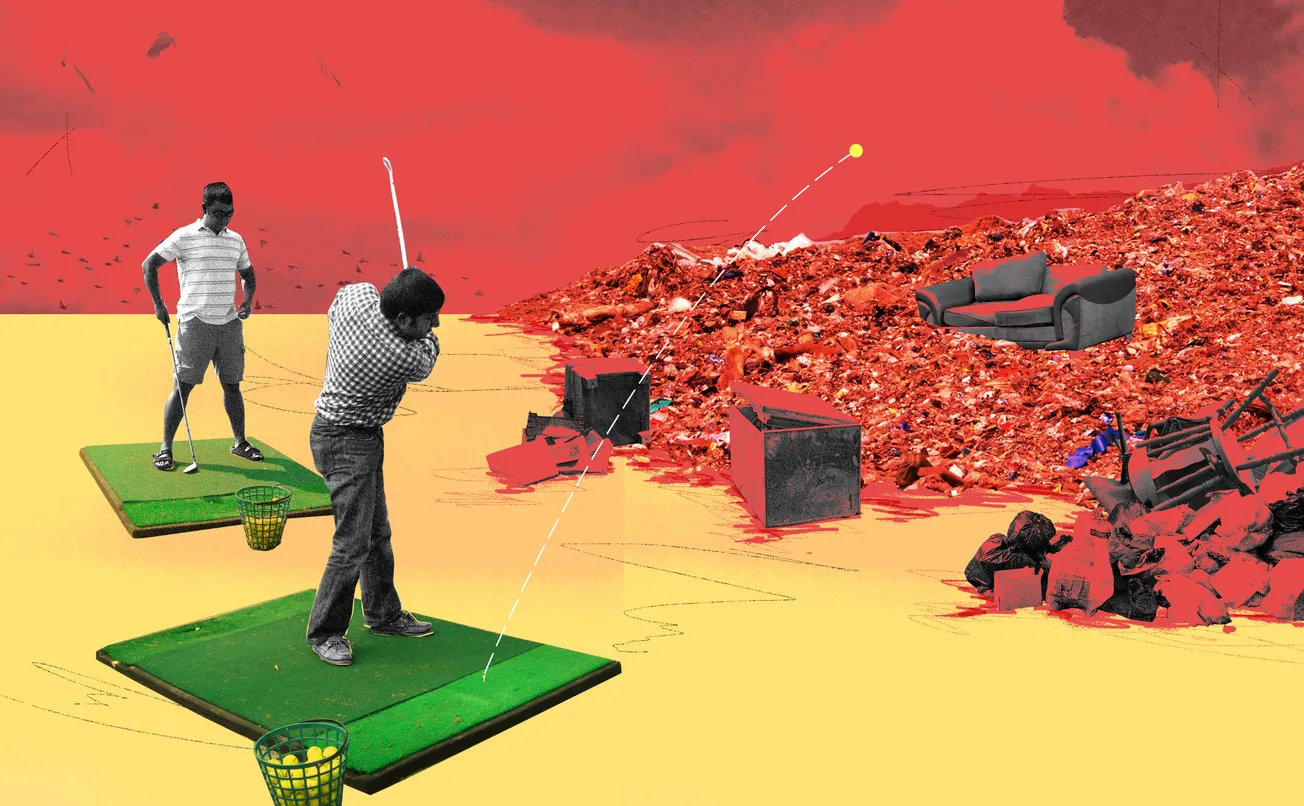By Faye Bramley
A somewhat common joke on social media apps like Instagram and TikTok is to create fake tourism ads for the city of Sheffield, using footage from more famously beautiful destinations. “The great pyramids of Sheffield,” reads the caption on one, over a sweeping shot of the Giza Necropolis in Egypt. Another uses a video that appears to be of the Amalfi coast. It’s an affectionate jab at a northern city some people assume is not particularly attractive or exotic. But sitting in Nomad Maison, a rug shop on the Wicker, feels like being in one of these tongue-in-cheek videos brought to life. With its luxurious rugs and fine ceramics from North Africa and Anatolia, it’s as if a Moroccan souk has been airdropped into inner-city Sheffield.
I’m here for Poetry and Pot Luck, an event hosted by Sheffield-based poets Nell Atwood and Mishael Cheelo, which is part of the city’s 10th annual Migration Matters festival. As poets perform work based on the theme “a taste of home” — with topics ranging from dodgy student house meals to the vagaries of baking — those listening tuck into a feast of dishes donated by attendees. On my plate: baba ganoush, cauliflower with miso tahini and tomato sauce, roasted radishes with dates and lemon, cabbage and cumin coleslaw and turmeric toasted pecans. When I notice people walking away with olive and cheese borek, saag paneer and Brazilian cheese bread I secretly wish I was no longer a vegan.
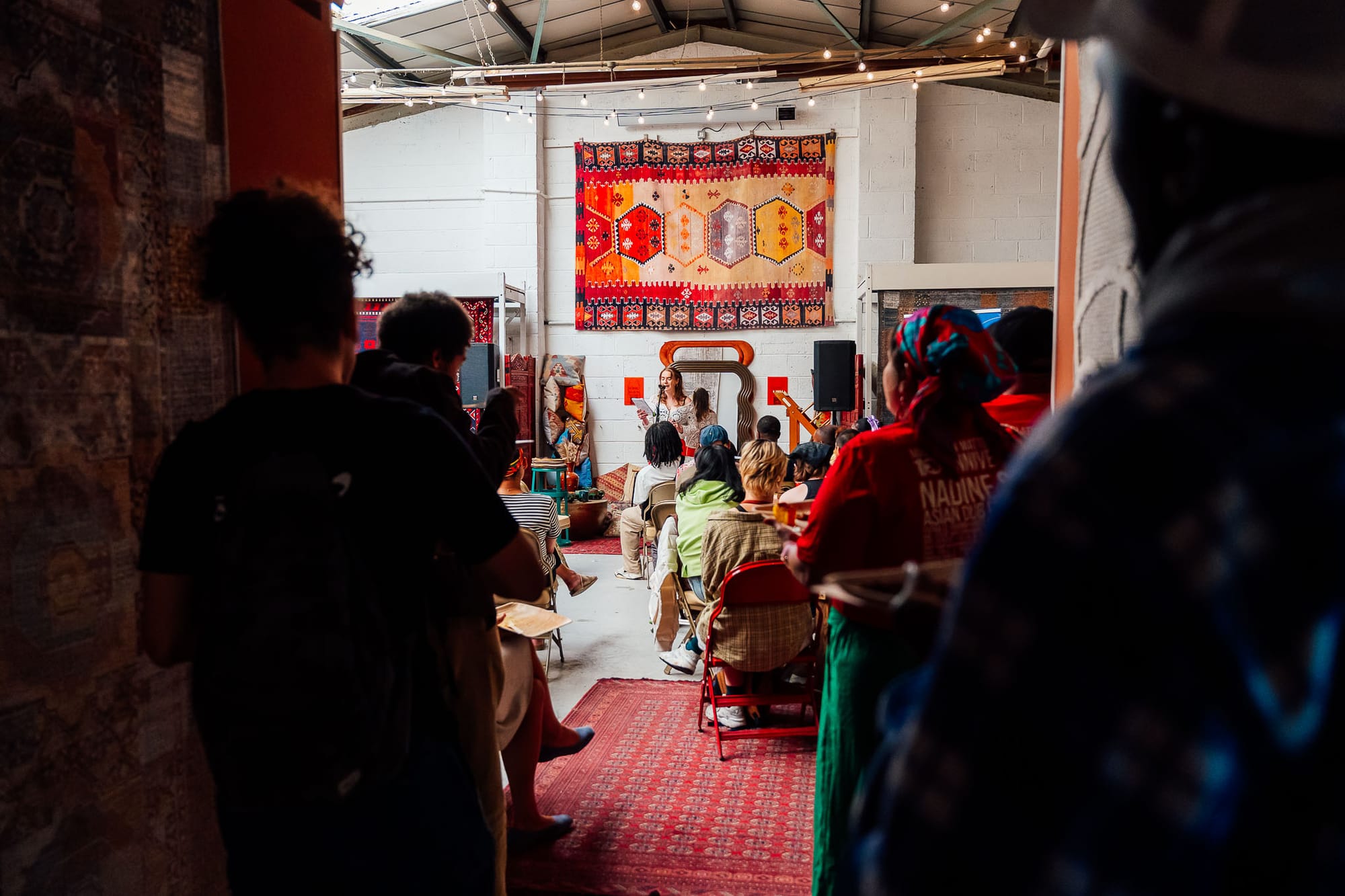
Sat next to me is Pakistani-born writer and poet Narimaan Shafi, currently working on a project about her own family’s history of migration and partition. As we eat, I ask her whether it feels strange to be taking part in a week-long celebration of migration at a time when the UK seems far from migrant-friendly. Last August, rioters in Rotherham attacked a hotel housing asylum seekers, at one point seemingly trying to light the building on fire. Almost 100 people, including a 13-year-old boy, have since been convicted for their part in the disorder. In mid-May, Labour Prime Minister Keir Starmer made a speech warning that the UK risks “becoming an island of strangers” without curbs on immigration — although he has since said he “deeply regrets” this choice of words.
“Migration Matters works because it’s Sheffield,” Shafi replies. “If you're going to be a brown person anywhere in England, Sheffield is a good place.” As evidence, she points to the shocking events of last summer. While hotels were targeted in Rotherham and Tamworth, here in Sheffield a mass outpouring of solidarity turned far-right protests into a damp squib.
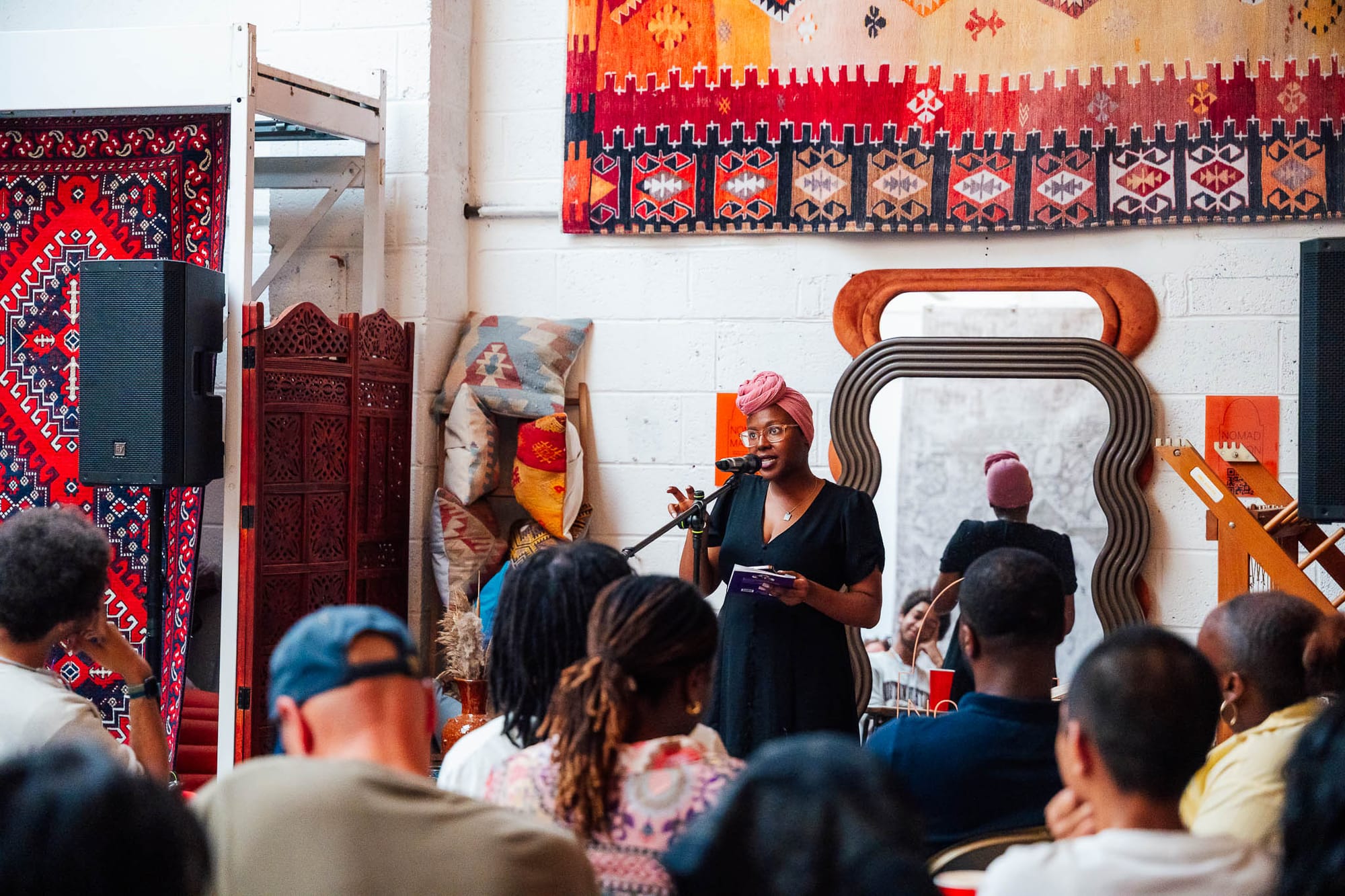
But despite her positive take on the diversity and acceptance of Sheffield, she takes my point about the prevailing mood in the country. “It’s more important than ever to do this,” she says. “I grew up in northern England in the 70s and 80s, so this is not new to me, but it feels like we are going backwards.”
Migration Matters was founded in 2016 in response to the Syrian refugee crisis and is now the largest Refugee Week event in the UK. Back when the festival began, the same year as the Brexit referendum, those in favour of leaving the EU insisted they wanted to “take back control” of the UK’s borders. In the decade since, it seems the issues of migration, asylum and British identity have only become even more divisive.
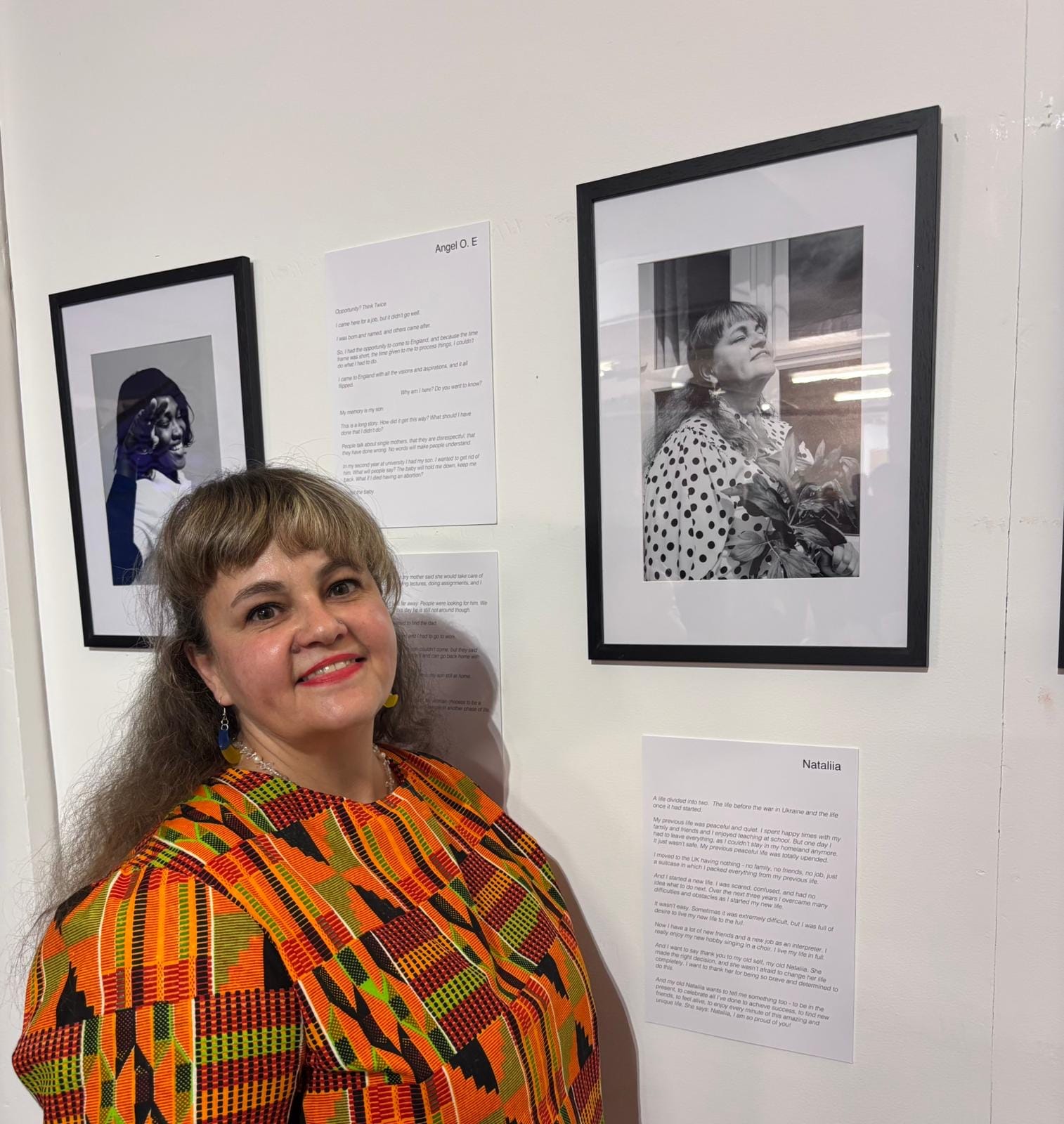
Sheffield has long sought to be a port in the storm of anti-immigrant sentiment. In 2007, the city declared itself the UK’s first “City of Sanctuary” for asylum seekers and refugees, although our welcoming history stretches as far back to the seventeenth century, when Huguenots came here to escape religious persecution in France. Two centuries later, waves of Jewish refugees arrived in the city from Russia and Eastern Europe and, more recently, the city has become home to displaced communities from Chile, Vietnam, Somalia and Yemen.
According to festival volunteer Aymen Greba and performer Nataliia Holovina, who sings in the One World Choir, Sheffield has more than lived up to its promise of offering a safe and welcoming haven. Nataliia, from Ukraine, was housed by a local family when she came to the UK, while Aymen, originally from Libya, now considers Sheffield a second home. “When I moved to the UK, I had nothing. I had no job, no family, no friends, nothing,” says Nataliia. “Now I feel alive and at home. I am in a family, I am not alone.” Aymen was not allowed to work or study while waiting for his asylum claim to be processed, meaning he was living off less than a tenner a day and cut off from most avenues for meeting new people. Volunteering at Migration Matters gave him a network and a sense of purpose. “You find a community — people who you can understand and who can understand you,” he says.
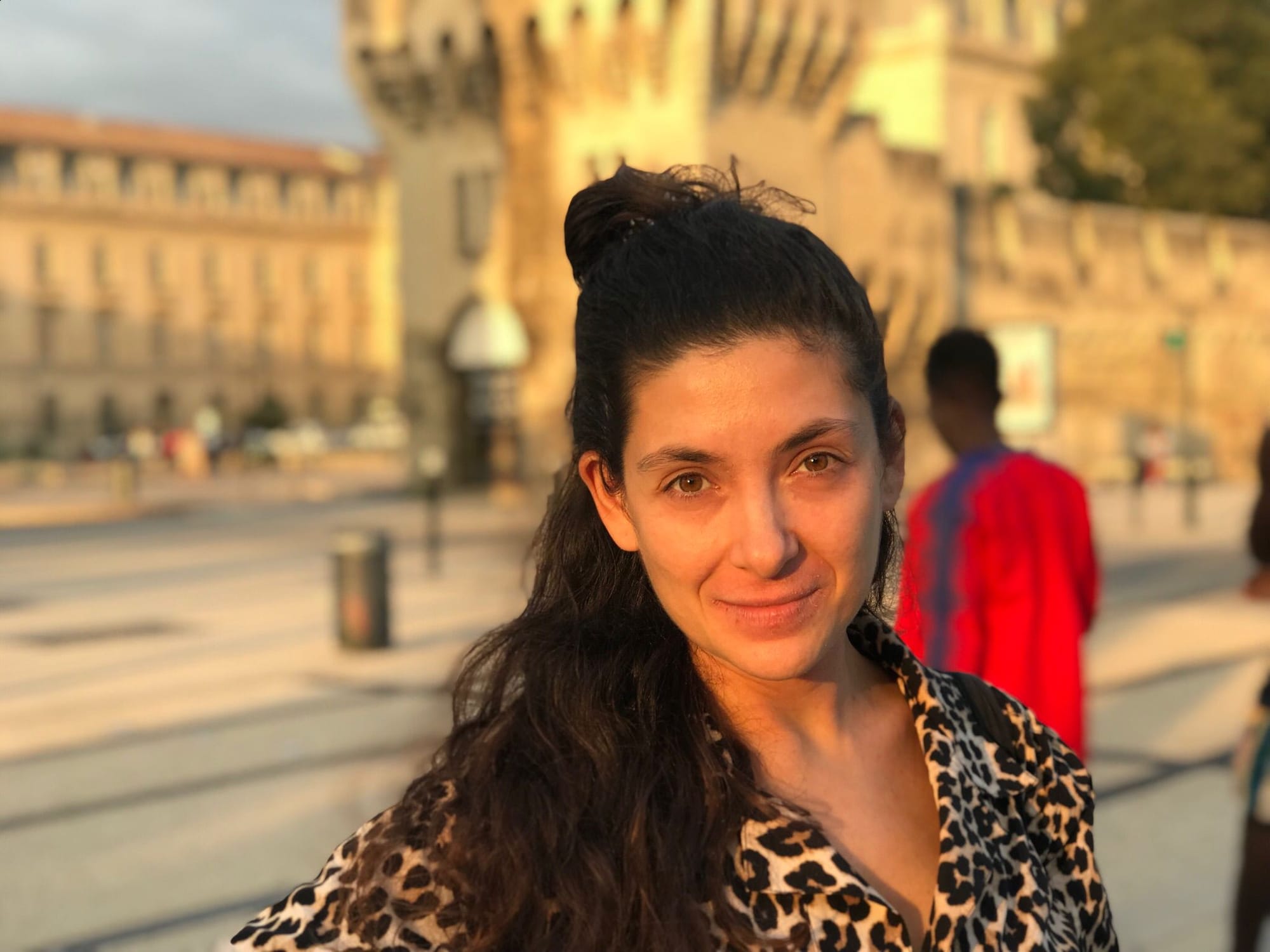
However, Sheffield’s receptiveness could only do so much to make the harrowing reality of navigating the UK’s asylum system any easier. “I thought it was just doing paperwork and having an immigration solicitor and that was it,” says Aymen. “But I realised it’s way tougher than that.” He remembers his initial interview at Vulcan House, the immigration reporting centre for South Yorkshire, where he anxiously handed over his passport and received a thick pamphlet of legal jargon detailing the potential jail time and deportation risks for breaching a seemingly endless list of restrictions.
This is something that Lora Krasteva, an artist born in Bulgaria, explores through her work. In Becoming British, which has been shown at Migration Matters for the last two years, first as a standard exhibition, then as a performance piece, Lora explores national identity and belonging from the perspective of first-generation migrants in the UK. In the performance, cast members perform a series of bizarre, rule-bound tasks, like finger painting a Union Jack whilst blindfolded, representing the invisible and often impossible demands placed on those navigating the UK’s asylum system. As a self-taught artist from a diverse background, Lora says she is hugely grateful to Migration Matters for offering her a platform to showcase her work.
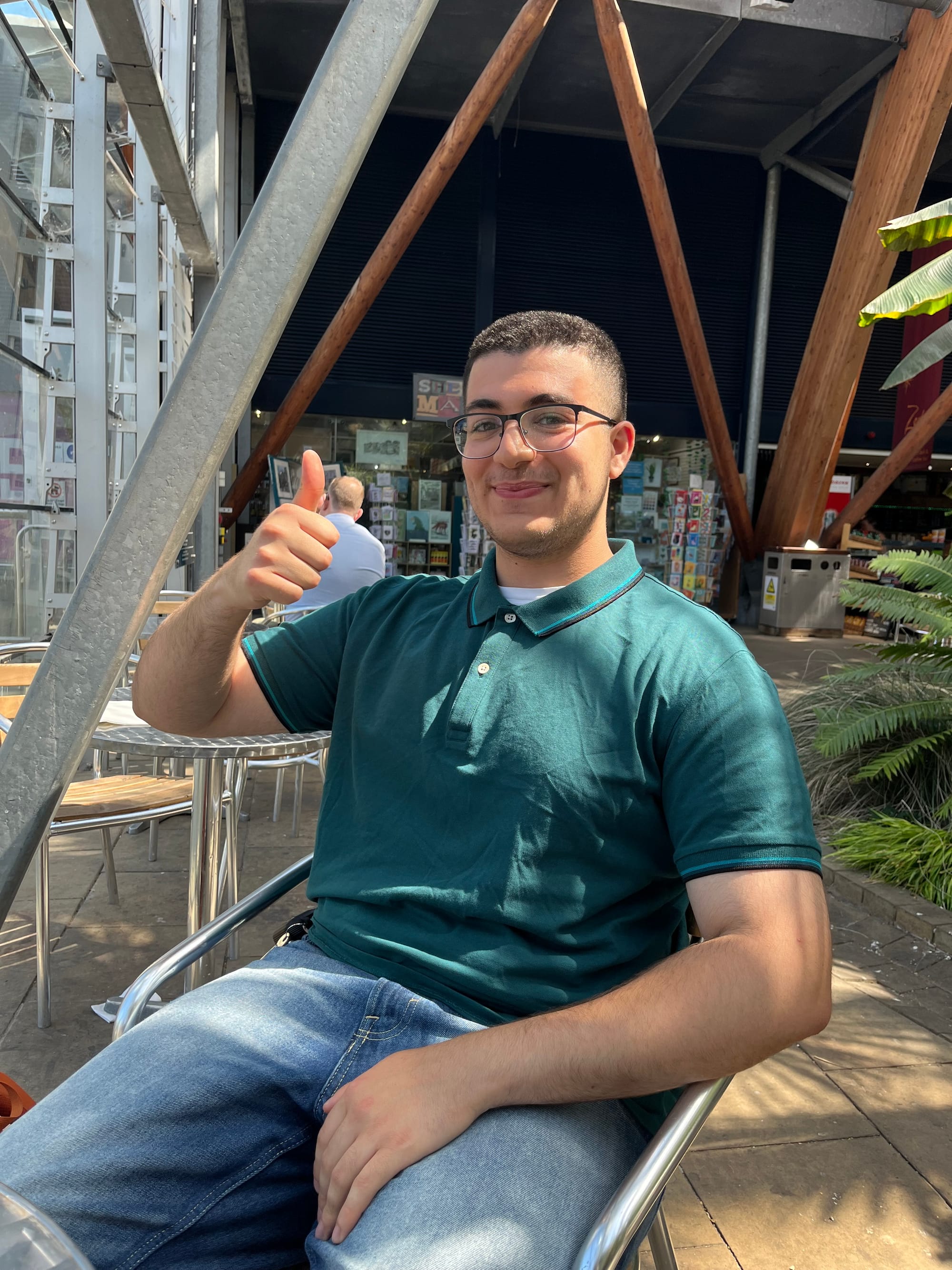
Migration Matters is run by 11 staff and 52 volunteers, a large majority of whom are themselves from migrant backgrounds or refugees and asylum seekers. Despite this relatively small team, it has managed to consistently expand and improve, year after year, for the last decade. In its first year, the lineup included just 20 events in a single venue. This year’s festival consisted of 60 events in 25 venues around the city, including performances by major stars like Asian Dub Foundation and Nadine Shah.
Just as the festival has spread further across the city, it has also expanded its focus. What started as an event specifically to uplift refugees and asylum seekers has now morphed into a celebration of the contribution all migrants have made to Sheffield. Project manager Leonie Sloots tells me this can include anyone, from people who came here as part of the Windrush generation to people like her, someone who settled here after moving from the Netherlands.
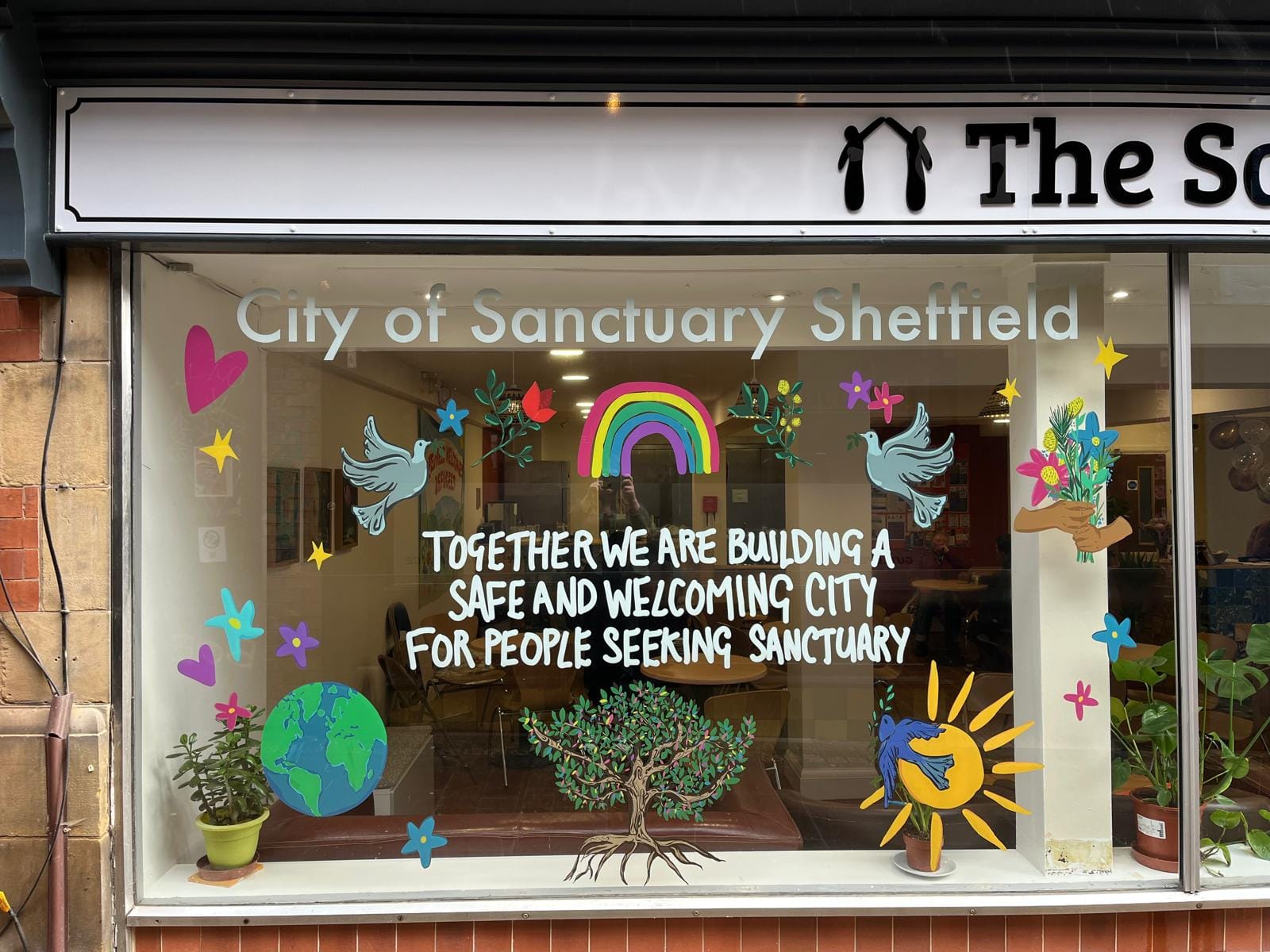
It’s easy to feel despondent about the general sentiment surrounding immigration at the moment and, if you were to look online, you’d quickly be able to find evidence that Sheffield is becoming just as hostile as the rest of the UK. Earlier this week, a man was arrested on suspicion of a religiously aggravated offence after he was caught releasing rats outside a local mosque. A few days later, John Booker became Sheffield Council’s first Reform UK councillor after a by-election in Stocksbridge and Upper Don.
According to the festival’s volunteer coordinator Susan Morley, one of the best things about Migration Matters is its ability to act as an antidote to these dispiriting headlines. “Anyone who comes to any of our events will see the positivity that there is,” she says. “The festival always reminds me that fundamentally people are good and the majority of people of Sheffield are welcoming and care about others. So many people are buoyed up by this festival. When there is so much noise and negativity, it’s really nice to be able to celebrate.”
The Migration Matters closing party takes places tonight at SADACCA. Doors open at 7pm. Tickets here.
Additional reporting by Dan Hayes.
As a paying Tribune member, it's your sacred right to comment
on articles and you should exercise it as frequently as possible,
because we love hearing from you.
Have you attended Migration Matters this year? Do you think Sheffield is still a city of sanctuary? Let us know in the comments.


